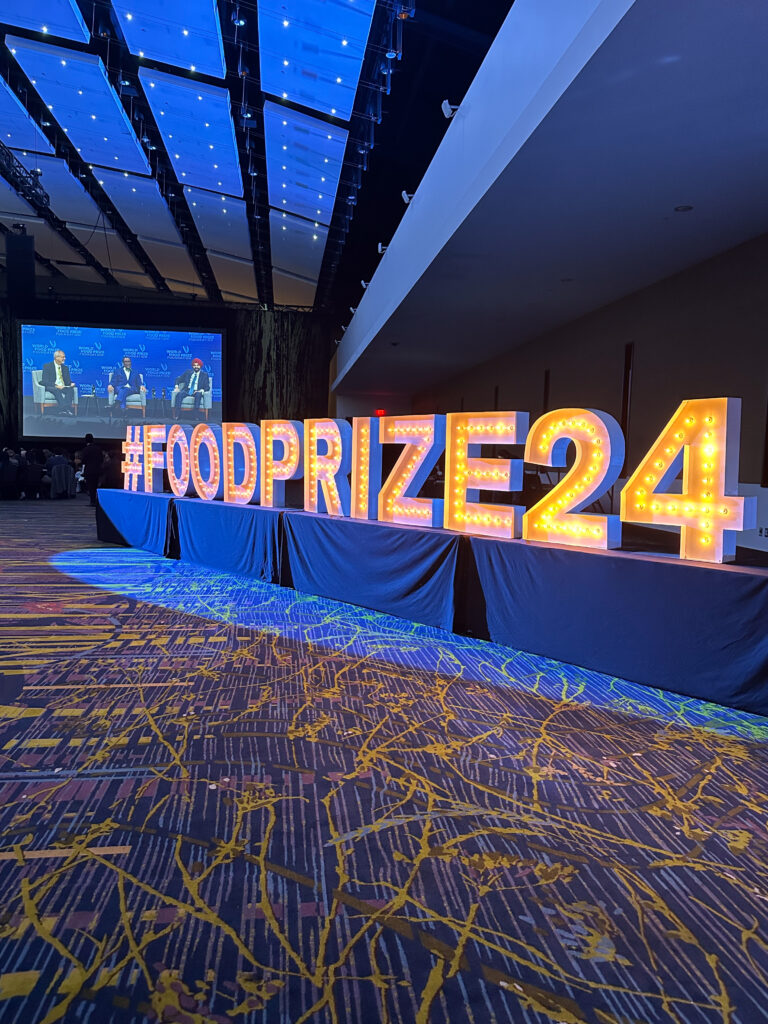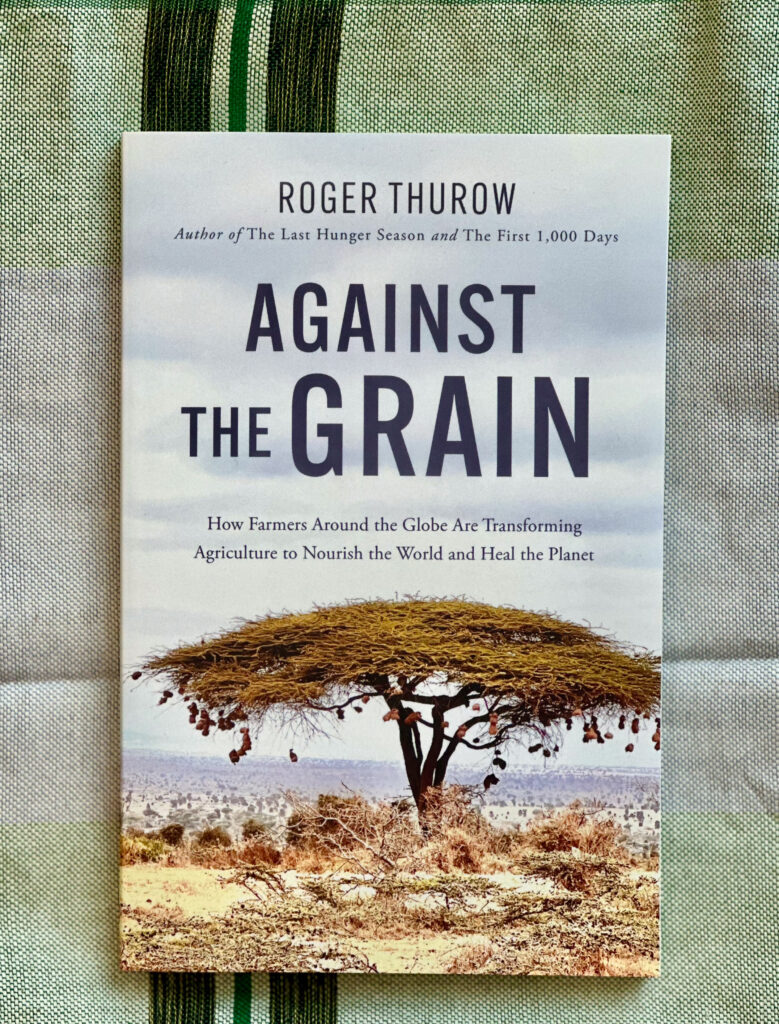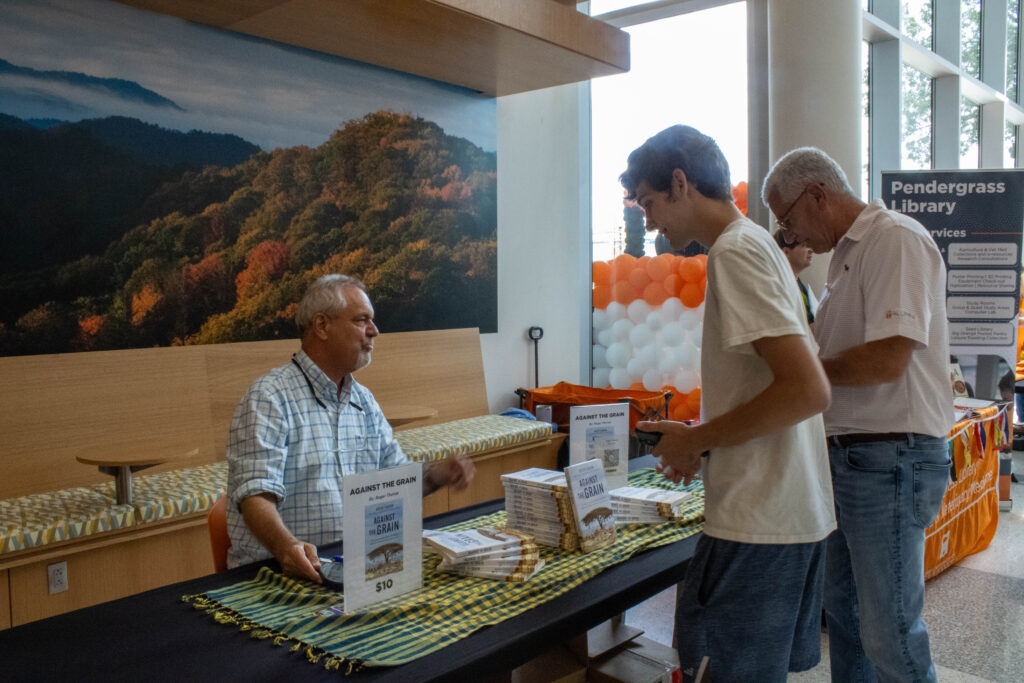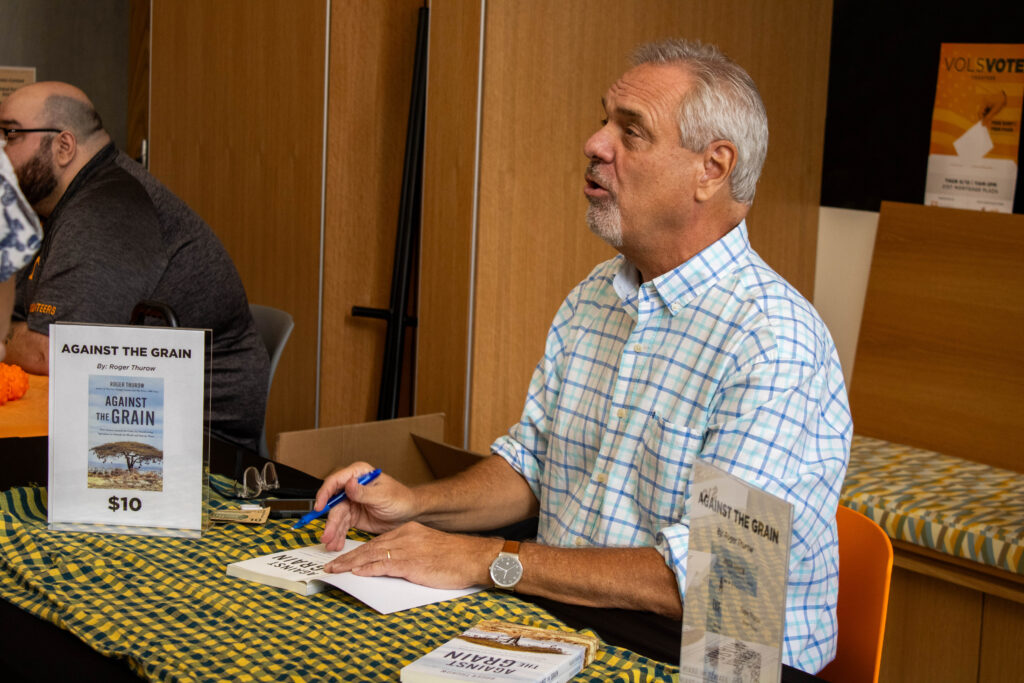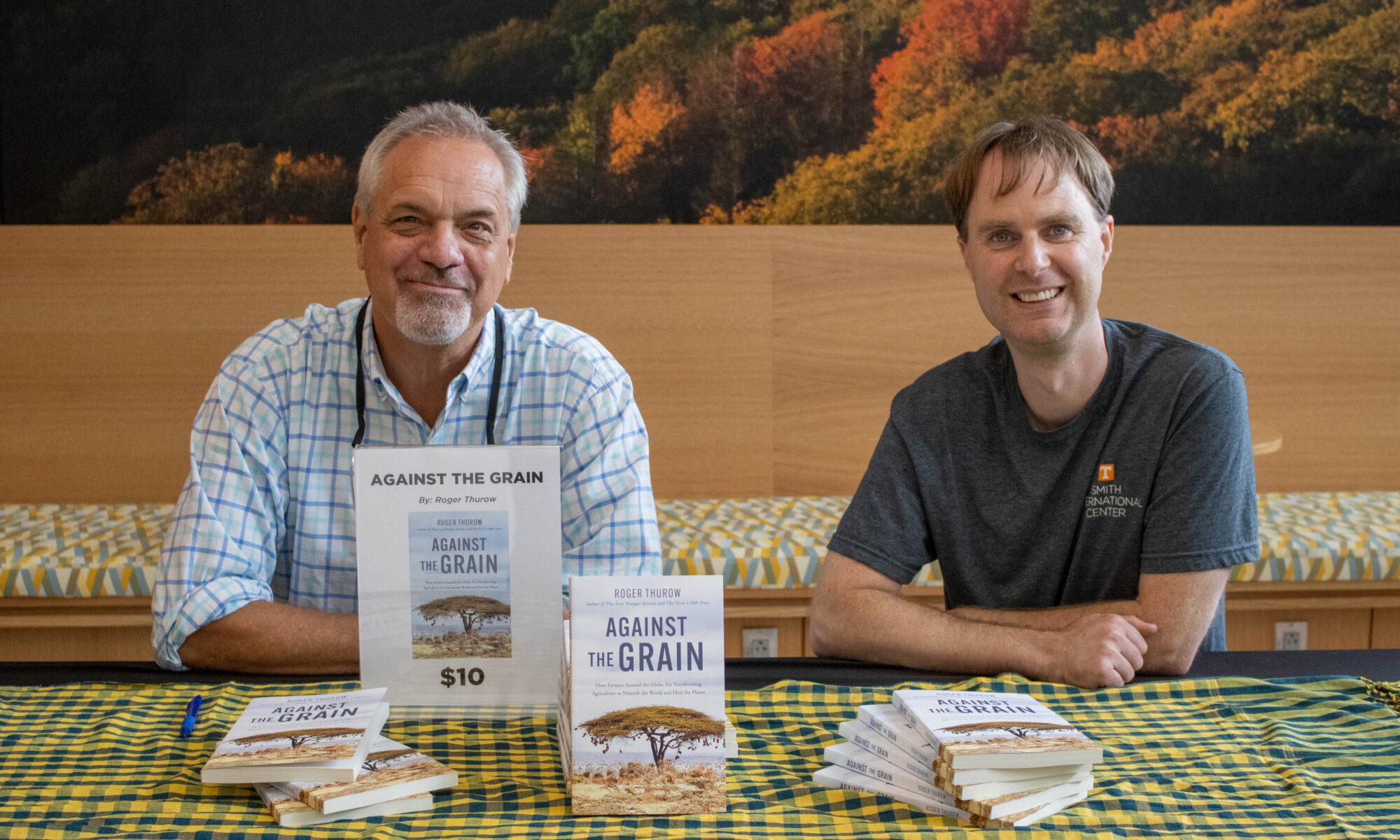
By Mary Shelley-Snell
Roger Thurow spent thirty years reporting for the Wall Street Journal, and twenty working as a foreign correspondent. He has authored four books: Enough: Why the World’s Poorest Starve in an Age of Plenty, The Last Hunger Season: A Year in an African Farm Community on the Brink of Change, The First 1,000 Days: A Crucial Time for Mothers and Children—and the World, and Against the Grain: How Farmers Around the Globe Are Transforming Agriculture to Nourish the World and Heal the Planet. Thurow also co-authored a series on famine in Africa that was a finalist for the Pulitzer Prize. He is currently serving as a scholar in residence at Auburn University’s College of Human Sciences.
During his 2024 book tour for his most recent publication, Against the Grain: How Farmers Around the Globe Are Transforming Agriculture to Nourish the World and Heal the Planet, the Smith Center team was pleased to host Thurow for a book signing during the UTIA International Showcase. Learn more about his latest release and his dedication to telling stories about world hunger below.
As a journalist, you could’ve focused on any topic, why did you choose global food security issues?
During my time as a foreign correspondent for the Wall Street Journal, I covered all sorts of stories abroad, but it was in 2003 that I was sent to Ethiopia to cover the famine that was taking place there. Fourteen million people were on the doorstep of starvation, being fed by the World Food Program and other humanitarian aid organizations. In the subsequent days, I traveled with the World Food Program to some of the hunger zones and saw the food distribution and the crises first-hand. Ethiopia had, at that time, maybe a population of about 70 million. A fifth of that population was essentially starving to death. They were truly dependent on food aid from around the world.
Most of the ones in desperate need were the farmers and their families. It felt like the cruelest irony in the world. I remember thinking, “those are two words that should never go together: hungry and farmers.” One of the WFP volunteers, a water specialist, said “Looking into the eyes of someone dying of hunger becomes a disease of the soul. Because nobody should die of hunger.” We were just into the new millenium and with all of the progress within science and communications in the previous century, we could speak to anyone from anywhere in the world, and yet we still had (and have) this medieval suffering of famine and people dying from hunger and severe malnutrition.
During that trip, we went into some of the emergency feeding tents that were filled with dozens and dozens of children and their parents who had carried them there. That’s the story that stopped me cold. Usually, I would have visited that feeding tent, written my story and moved on. The broader story of hunger in the 21st century and the absurdity and obscenity of that, along with that notion of hungry farmers became my moment of great disruption, both personally and professionally. Since then I have become a sort of one note journalist because I believe writing about hunger and malnutrition in various forms around the world is just that important.
Against the Grain is now your fourth book on global agriculture issues. Why do you keep telling these stories?
After writing my first book, I discovered a passion for being more intentional in how I tell peoples’ stories. Being able to capture the same group of peoples’ experiences over a longer time frame creates the opportunity to delve deeper into the complexity of their lives. This was especially gratifying in my work on The First 1,000 Days, where I followed mothers and children over a critical period, allowing me to tell their stories with greater depth and impact.
My new book builds on this approach, expanding both geographically and chronologically to examine how hunger and nutrition challenges continue to persist in 2024. It revisits places like Ethiopia, where I tracked the progress of farmers I first met during the 2003 humanitarian crisis. Through regenerative agriculture, these farmers have transformed their land, proving that healing the earth and feeding people are not mutually exclusive. This book is the culmination of my previous work, driven by the question of why hunger persists despite modern advancements. At its heart, it tells the story of farmers as unsung heroes, balancing the dual imperatives of nourishing the world and healing the planet.
We have a lot of agricultural communication students here. What would you say to students that want to pursue a career in journalism?
Facts, data, and numbers are important and they tell a certain story and are impactful, but it becomes even more important to weave in the emotions, voices, and experiences that exist behind every data point. People like to say as journalists that “we’re the voice to the voiceless,” but they’ve got it wrong. Each person already has a voice, we’re just not listening to it. You have to be aware of the perspectives you’re bringing to the situation so you can try to come into it as openly as possible, and truly listen well.
Any last thoughts for those of us interested in the importance of science communication?
Throughout my time as a journalist, I’ve been able to observe the connection that exists between all farmers around the world. The setting and situations may differ, but farmers everywhere face similar big problems. Asking questions and telling stories plays an important role in finding solutions to those problems. It’s all about this exchange of ideas so we can build on that global kinship and help each other. I think that will be how we collectively move forward to address world hunger, malnutrition, environmental degradation, and feed the world together.
The Smith Center team was pleased to connect with Thurow again at the 2024 World Food Prize Foundation Norman E. Borlaug International Dialogue. He moderated a panel discussion between Akinwumi Adesina, 2017 World Food Prize Laureate and President of the African Development Bank, and Ajay Banga, President of the World Bank Group, on the mission of achieving a hunger free world. If you’re interested in learning more about our work building collaborations like this one and growing global across UTIA, please visit our website for more information.
